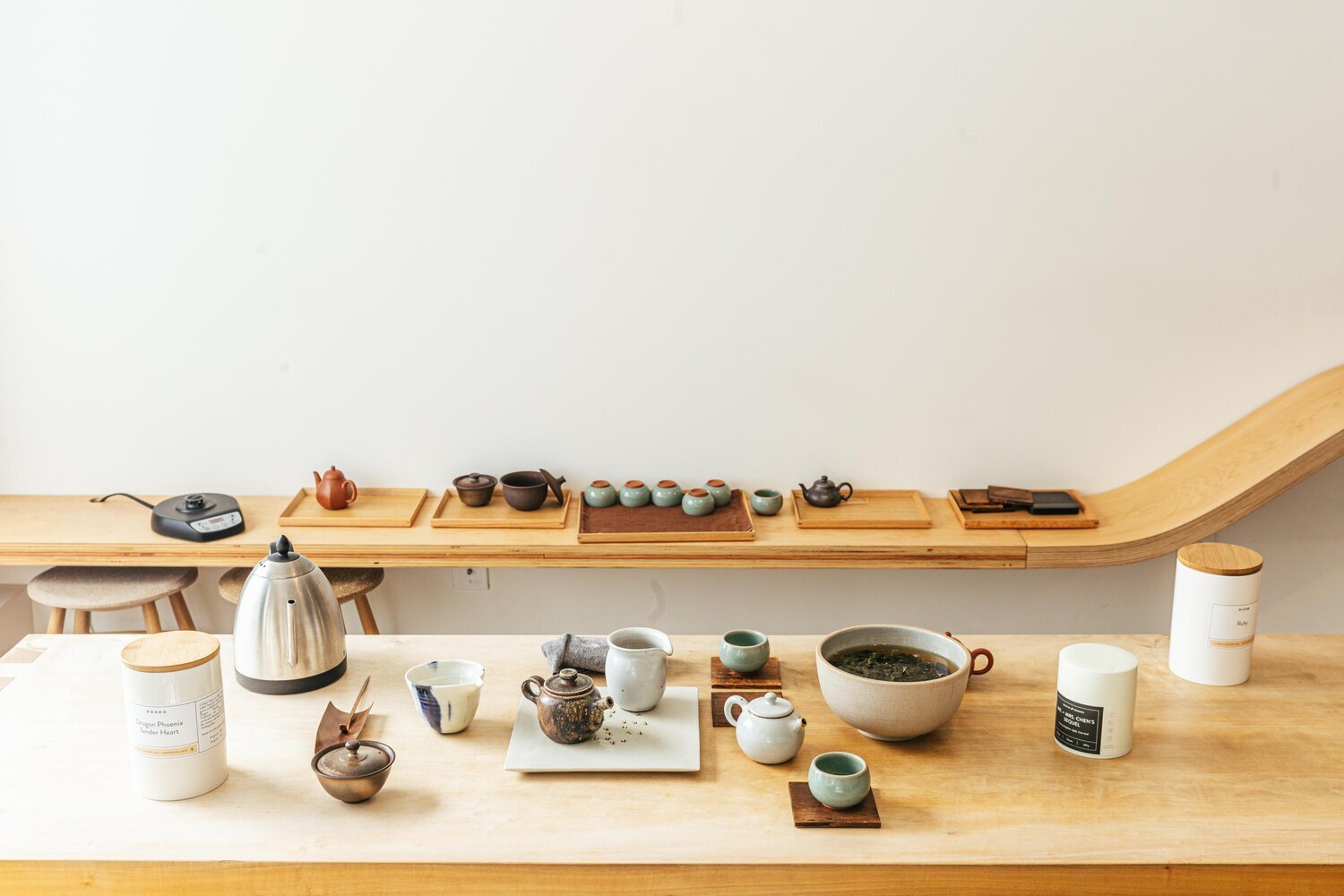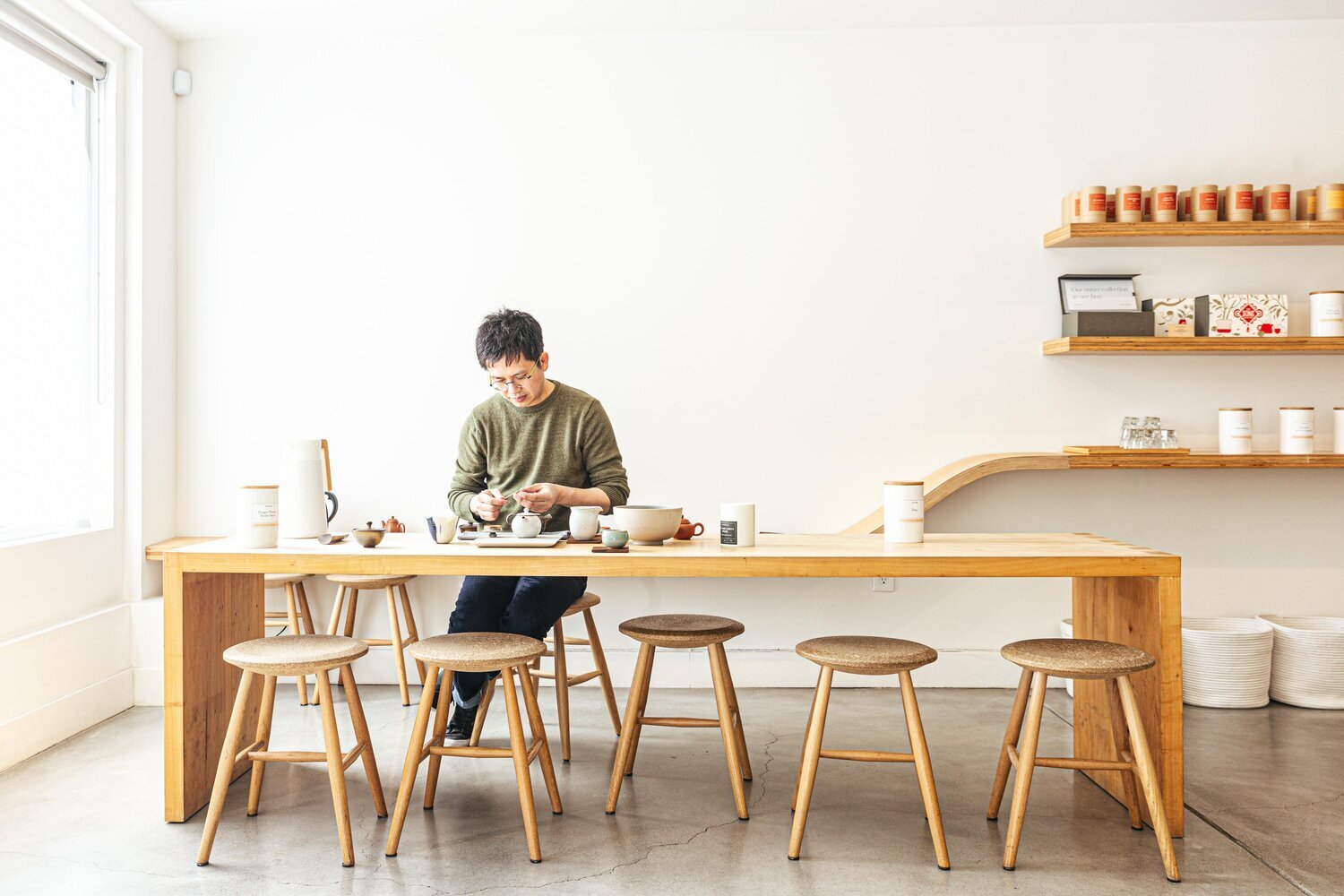There is a saying in Chinese called 緣分(Yuan Fen). Meaning fate, destiny, luck or whatever you call it. 緣分 is how you find yourself in San Francisco, meeting online friends for the first time in cafes who connect you to local finds. 緣分 is how you discover a tea on the cafe menu from your family hometown and coming across a story you must write. That is how I connected with Peter Loung, the founder and owner of Song Tea & Ceramics.
Tea shops are a beautiful thing. They call you to enter space where time slows to a trickle and you are invited to drink from a library of beverages in handmade ceramics. I grew up on a tea farm with a family that drank tea like water. Our tea was grown for the outside world and something I took for granted during my careless childhood roaming around the lush rows of tea bushes in my rubber sandals. Yet here I am, twenty years later, learning more about tea in California than I have ever had. From production, sourcing ceramics from makers in Taiwan, tea picking, roasting, depth and finish — there is much to the world of tea. Here are photographs and snippets from our conversation.
Tell me about the inspiration behind the name Song Tea?
Peter: The word Song (宋)is taken from 宋朝(Song Chao). It was the shortest dynasty in China. Short, but one that lasted 300 years. When I opened Song Tea, I decided that it is a period long enough for me. I am also drawn towards ceramics from the Song dynasty.
What was your motivation for opening this store?
Peter: My parents immigrated to San Francisco 30 years ago. They owned a herbal tea shop 藥茶店 in Chinatown. Back then, I worked in consulting. When that came to an end, I took over their shop with the mission of repositioning it for the American market. I was there for two years before deciding it was not for me. I sold the shop and started a gentler version of the business— Song Tea.
When people drink your tea, what is it is you want people to take away?
Peter: Working with tea was a reconnection with culture for me. Hong Kong — the world my parents left. I love how tea is a myriad of many things — food, ceramics, the moment you share a cup with someone. I don’t want to sound overly fancy but tea is transformative. The experience, the simple act of brewing. I personally find it very fulfilling to share the agriculture aspect of tea, along with ceramics that complement each drink.
What was the hardest part of building Song Tea?
Peter: The first three years were the hardest. The uncertainty, becoming a sustainable business, the underlying stress of overhead. That has somewhat faded away. Song Tea is growing.
What should one look for in good tea?
Peter: Texture. Structure. Thickness. Good tea should taste and feel good. It should not taste astringent. Look for depth and finish. Ultimately, what you are drinking should be delicious.






